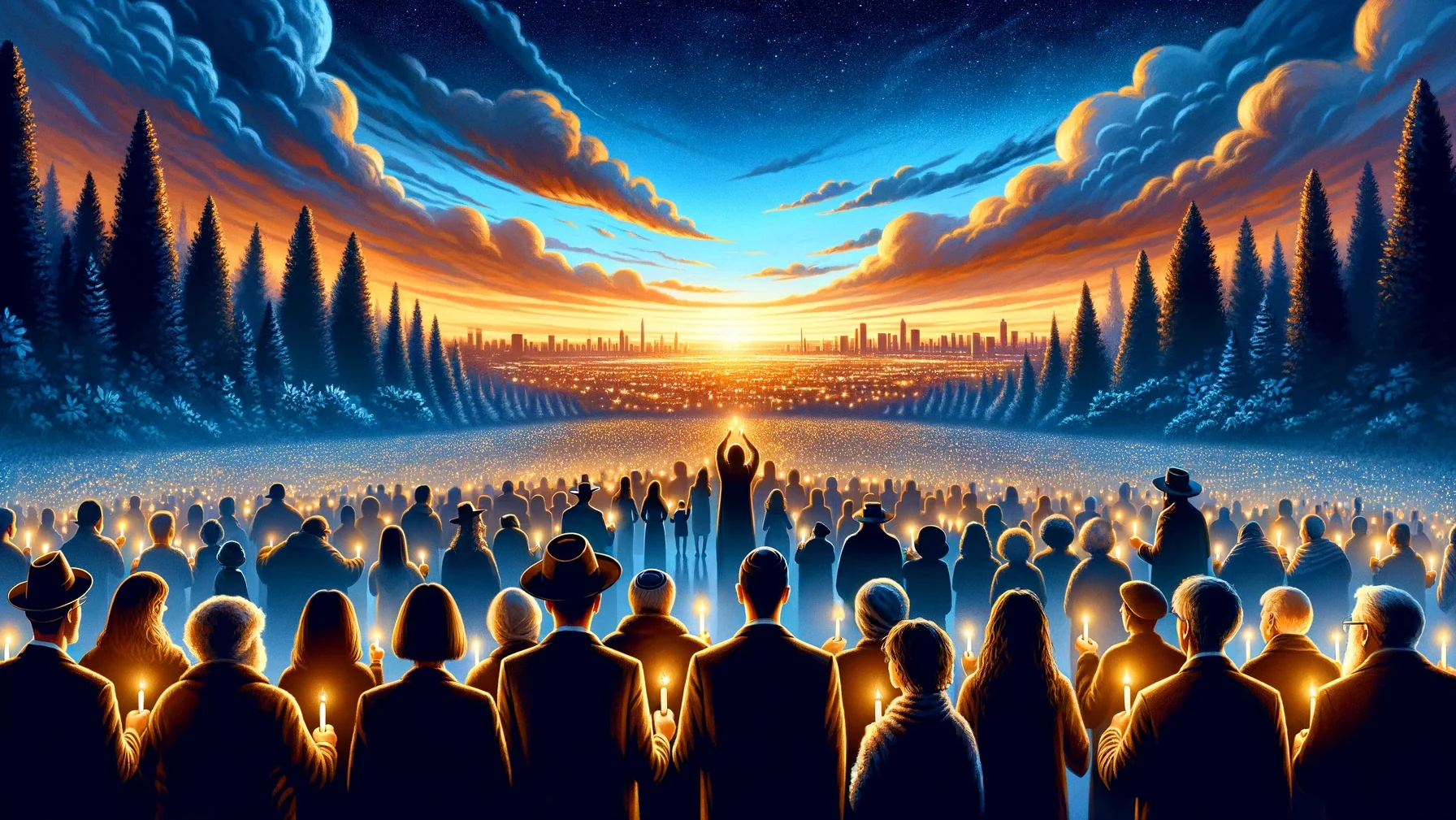Just Like Israel, the Jewish Diaspora Also Won’t Look the Same
Maariv, Israel, December 2
The Six-Day War had a powerful, seismic impact on Diaspora Jews—both internally within their own communities and concerning Israel. The events of Oct. 7 will likely be yet another watershed moment of this kind. Not only did Israel change on that day, but Jewish life outside of Israel won’t ever look the same again. It’s important to recognize the figures. Generally speaking, demographers agree that there are about 17 million Jews in the world today. Seven million live in Israel, 8 million in North America, and the remaining 2 million are spread throughout the rest of the world. How will Jewish life in the Diaspora look by the end of the current Gaza campaign? In terms of personal security and antisemitism, there’s no need to wait for the outcome to find out. Last week, I spoke with a rabbi from a prominent Los Angeles community. His son is on the city’s high school football team, and the father was in the stands cheering him on. However, something happened during the game that left the son feeling distressed when they reunited afterward. The son opened up in the car: He’d been called a “dirty Jew.” The father was stunned; he asked why his son hadn’t told the coach, to which he replied that others on the team had been subject to the same treatment. Recently, the US has seen a surge in antisemitism, not just on college campuses, but in all areas of society. Two weeks ago, a Jewish peace activist in Oslo attended a demonstration organized by Amnesty. He brought two flags—the flag of Israel and the flag of Palestine—which he held back to back. He also held a sign that called for two states for two peoples. Sadly, he was forcibly removed from the location when activists demanded that he surrender his Israeli flag. The demonstration concluded with chants of “From the river to the sea, Palestine will be free.” In response to this rising tide of antisemitism, increased security around Jewish institutions has been deployed. Further, the wearing of clothing with Jewish symbols is being restricted. It is hoped that this reality will dissipate in the US over time. The significance and impact of the Oct. 7 massacre in Israel cannot be overstated—it has shaken the collective Jewish identity to its core. Synagogue attendance, regardless of denomination and platform, has soared as Jews sought to come together, talk, and be with one another in the wake of horrific violence. The unimaginable scale of the atrocities awoke a deep sense of sadness—none of us, no matter how distant one’s Jewish practice, have escaped the word “pogrom.” This time, it had a figure and a body, leaving behind the slaughtered, shot, and mutilated, and they looked just like us. Suddenly, history and shared destiny became reminders that, despite any previous feelings of Jewishness, you are here. The calamitous event has catalyzed a revival of Jewish identity and affiliation. This phenomenon has occurred at distinct times throughout our history when vicious antisemitism charged these movements. Some might state that good has emerged from this horror, but I reject that notion. Nothing could ever compensate for this devastation. The rapid, ardent, and stirring solidarity from the Jewish Diaspora toward the State of Israel, right after the full scale of the devastation came to light, is heartening. Large-scale rallies, demonstrations, delegations in solidarity, and fundraising efforts that have already approached $1 billion for the rebuilding efforts have all taken place. Israel, which just recently was the home of a government deemed worth protesting against, has reverted to being the home of our kinfolk, where if a blaze erupts, everyone runs to help put it out; after all, that’s what family does. We had forgotten that sentiment. This, too, will have far-reaching implications. It is too early to tell what the overall influence of current events may have on the influx of immigration to Israel in the coming decade. I am supportive of aliyah and the renewal of the Jewish people in their homeland, and also understand the significance of a strong and unified Diaspora. There is no need to reconcile the two forces—we must strive to strengthen both. The potential of their coexistence may be complicated, but it should not be seen as a paradox. May we be blessed with more courage, clarity, and vision to navigate the opportunities that lie ahead. —Yizhar Hess (translated by Asaf Zilberfarb)
This holiday season, give to:
Truth and understanding
The Media Line's intrepid correspondents are in Israel, Gaza, Lebanon, Syria and Pakistan providing first-person reporting.
They all said they cover it.
We see it.
We report with just one agenda: the truth.



